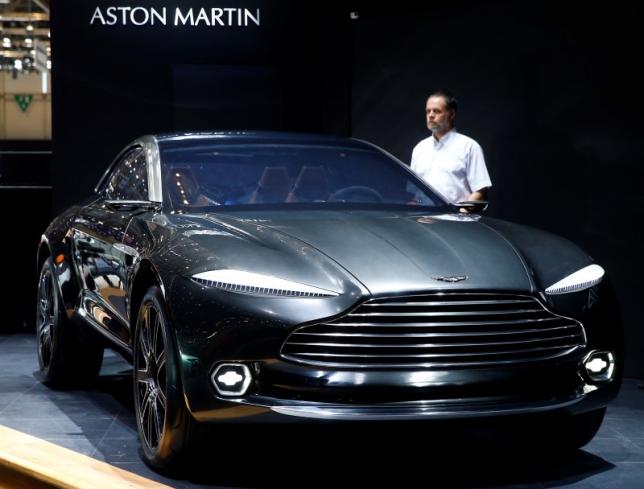The British Car Manufacturing Renaissance: Aston Martin Announces New Factory in Wales
Luxury carmaker Aston Martin is set to open a new factory in south Wales as British carmaking sees a cautious renaissance
Luxury carmaker Aston Martin has announced that it is to invest £200 million in a new factory in south Wales to exclusively build its new crossover car, the DBX. Construction work on the 90-acre plot in St Athan, Glamorgan, is planned to start in 2017, with full vehicle production set to commence in 2020. The plant will re-purpose three existing “super-hangars” which are currently in use by the Ministry of Defence. Directly creating more than 750 skilled jobs, the St Athan’s development will also include a skills academy.
It will be Aston Martin’s second factory in the UK, joining its existing manufacturing base and headquarters in Gaydon, Warwickshire, which is also set for expansion. In total, the two sites are expected to create up to 3,000 positions across the supply chain.
UK wins out in worldwide search for manufacturing facility
The decision to build in Wales follows a worldwide search of over 20 potential locations, which included sites in the US, Canada, Mexico, eastern Europe, and parts of the Middle East. Aston Martin also considered Birmingham and Coventry.
Aston Martin CEO, Andy Palmer, said that the company had chosen Wales because he was “consistently impressed with the focus on quality, cost and speed from the Welsh government team”. He continued: “We have a wealth of craftsmanship here. It takes 200 hours to make a car and to do that we need skilled labour and we have got that skilled labour in Wales, in Great Britain and that played a big part in our decision.”
Welsh economy minister Edwina Hart said: “This is a win not just for Wales but for the UK.
British car manufacturing shows signs of cautious renaissance
Indeed, the news will certainly boost confidence in the UK car manufacturing industry, an industry which was presumed dead just one decade ago. After record high production of 1.92 million cars in 1972, that figure dropped below 1 million in 2009 shortly after the emblematic collapse of British car maker Rover in 2005.
But in signs of a cautious renaissance, last year, total British car production hit its highest figure since 2007, at 1.6 million. It has also been the only car market in Europe to grow consistently over the past years.
In the past five years, Tata-owned Jaguar Land Rover (JLR) has seen annual sales double to more than 450,000 vehicles and revenues nearly triple to £19.4 billion. And in 2014, Sussex-based BMW-owned Rolls-Royce announced its highest annual sales of its 109-year history, up 12% year-on-year. Rolls-Royce has also invested millions in its new plant in Goodwood.
Industry body the Society of Motor Manufacturers and Traders (SMMT) reports that 2016 has already enjoyed a “strong start”, up 8% year-on-year with the best January figures for eight years, and up for the sixth month in a row. The SMMT is confident that the record figure set in 1972 will be beaten by 2017.
Export led boom

Jaguar Land Rover’s Halewood factory
Export is at the centre of this boom in British manufacturing as foreign demand for luxury, British heritage grows. Eight out of ten cars made in Britain are designed and sold for export. In January, export production was up 9.7% compared year-on-year. And the SMMT recorded a record year for exports in 2015.
Foreign investment in UK car manufacturing is also pouring in. Carmakers invested a total of £7bn in the UK in 2013 and 2014. Last year, the UK car industry saw more than £1 billion invested in one single week, as Chinese automobile firm Geely announced a £250 million plant in Coventry to manufacture low-emission black cabs, which will also create 1,000 jobs, Japan’s Honda announced a £200 million investment in its Swindon plant to produce its Civic model, and JLR committed £600 million to its West Midlands operations.
Similarly, the new Aston Martin DBX model which will be built at the new St Athan’s site is intended for export, with 90% of production expected to exit the UK. The crossover model, which will be available in hybrid and all-electric versions in addition to petrol/gas, combines features found in a passenger car with those of a sports car, a fast-growing luxury market segment, particularly in China and the US. The 103 year-old luxury company, which last made a profit in 2010, hopes the car will broaden its appeal abroad. The DBX is one of three new models Aston Martin is set to introduce by 2020 as part of this push to attract new, foreign buyers.
















There are no comments
Add yours